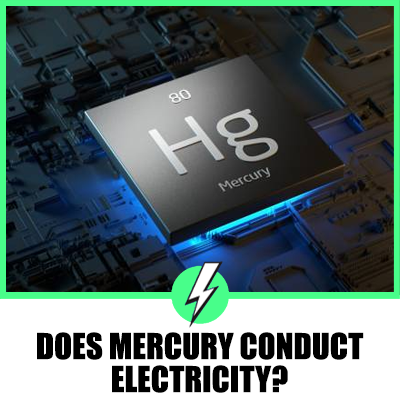Does Mercury Conduct Electricity? A Comprehensive Analysis
Mercury, a naturally occurring element, has been a subject of intrigue for centuries due to its unique properties.
One question that often arises is, “Does mercury conduct electricity?”
The answer is yes, mercury does conduct electricity.
But how and why it does so is a fascinating exploration into the world of chemistry and physics.
This article aims to provide a comprehensive understanding of mercury’s electrical conductivity, suitable for both UK and US audiences.

Contents
Why Does Mercury Conduct Electricity?
Mercury conducts electricity because it is a metal.
All metals are electrical conductors due to the presence of free electrons.
These electrons are not tightly bound to their parent atoms and can move freely, allowing electricity to flow.
In the case of mercury, it has two valence electrons in its outermost shell that can dissociate easily.
This is due to their distance from the nucleus of each atom.
When mercury gives away either one or two of these electrons, it forms electro-positive ions, enabling the flow of electricity.
The quantity of electric flux per unit cross-section area is also sufficient to support this well.
The Conductivity of Mercury
Although mercury conducts electricity, its electrical conductivity is only 1×10^6 S/m.
This is less than the electrical conductivity of most other metals.
It is still a fair conductor of electricity, just not as good as generally expected for metals.
Its conductivity is roughly on par with that of iron, making them comparatively the least conductive metals.
However, the conductivity of mercury is not constant.
It changes depending on its state.
In its liquid state, which is its natural state at room temperature, mercury’s electrical conductivity is a little weaker than when it is in solid form.
This is due to the nature of liquid mercury as per the perturbation theory, which states that the density of states does not affect the material’s electrical properties.
But this only holds true when the free electrons deviate up to a certain extent.
What Happens When You Put Electricity to Mercury?
When electricity is applied to mercury, the free electrons in the mercury atoms move, allowing the electricity to flow.
This movement of electrons is what we commonly refer to as electric current.
So, when you put electricity to mercury, you are essentially causing its electrons to move, creating an electric current.
Can Current Flow Through Mercury?
Yes, current can flow through mercury.
The flow of current is facilitated by the movement of free electrons in the mercury atoms.
When mercury gives away either one or two of its valence electrons, it forms electro-positive ions, enabling the flow of electricity.
This is a common characteristic of all metals and is the reason why they are generally good conductors of electricity.
Is Mercury a Good Conductor of Electricity?
While mercury does conduct electricity, it’s not considered a good conductor compared to other metals.
Its electrical conductivity is less than most other metals, with its conductivity being roughly on par with that of iron.
However, it’s important to note that mercury is still a fair conductor of electricity.
It’s just that compared to metals like copper or silver, which are often used in electrical wiring due to their high conductivity, mercury falls short.
Insights from Online Discussions
Online discussions reveal a variety of perspectives on mercury’s electrical conductivity.
Some users highlight the unique properties of mercury, such as its liquid state at room temperature, and how this impacts its ability to conduct electricity.
Others point out the potential dangers of mercury, particularly its toxicity, which has led to its decreased use in electrical applications.
The Environmental Impact and Health Risks
Mercury is a toxic substance.
Exposure to mercury can lead to serious health problems, including damage to the nervous system and kidneys.
Furthermore, when mercury enters the environment, it can convert into methylmercury, a highly toxic form that builds up in fish and shellfish.
This has led to advisories against the consumption of certain types of fish due to high mercury levels.
Due to these health and environmental concerns, the use of mercury in many applications, including electrical applications, has decreased.
For example, mercury was once commonly used in batteries, but due to the risks associated with mercury, most batteries today do not contain this element.
Conclusion
In conclusion, mercury does conduct electricity due to its metallic nature and the presence of free electrons.
However, its conductivity is less than most other metals, and its use in electrical applications has decreased due to health and environmental concerns.
Despite this, the study of mercury’s electrical properties provides valuable insights into the fascinating world of electricity and conductivity.
As we continue to explore and understand the properties of different elements, we can develop safer and more efficient ways to harness and use electricity.





